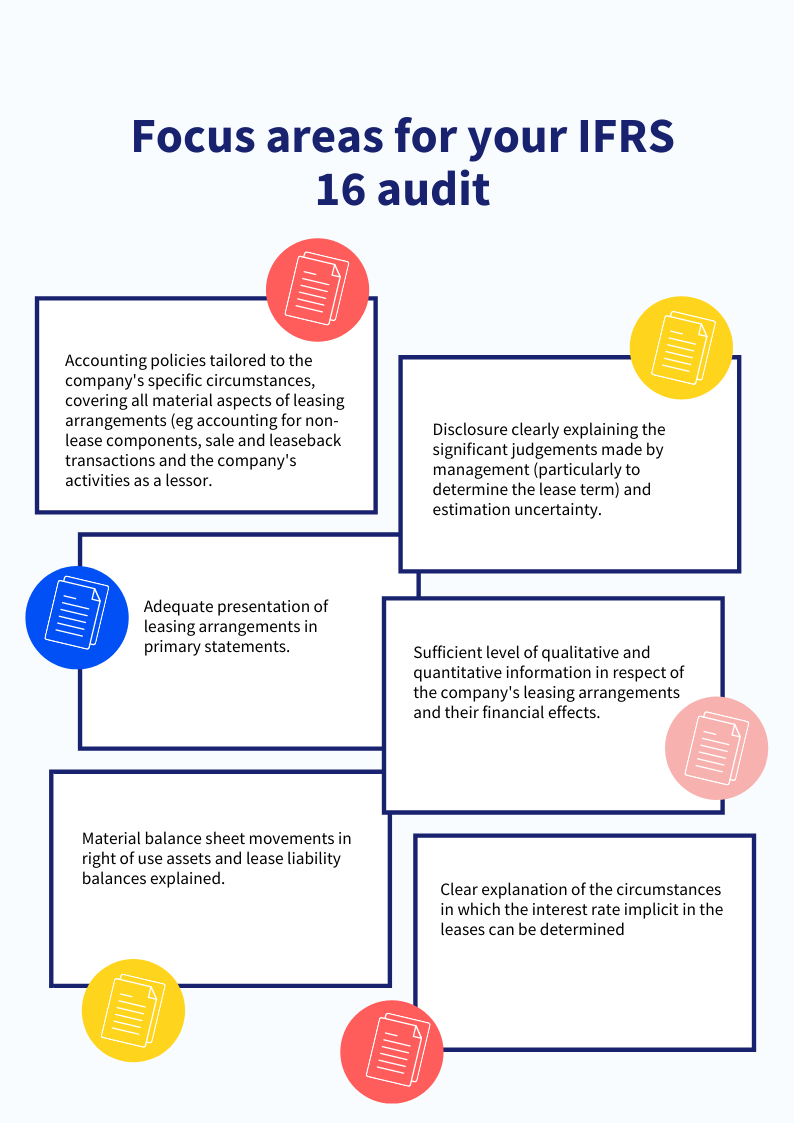The UK’s independent regulator of auditors, accountants and actuaries - the Financial Reporting Council have released their review of IFRS 16 /AASB 16 disclosures, reflecting on the first full year of application of the accounting standard. It has identified some significant areas for consideration and improvement which this article will discuss.
This review considers how effectively a sample of twenty companies met the ongoing disclosure requirements of IFRS 16, as well as the adequacy of the transition disclosures relating to adoption of the new standard.
Whilst the majority of companies sampled provided sufficient information to enable readers to understand the impact of adopting IFRS 16, there was also a number of identified opportunities to improve their disclosure. This article will discuss the key areas for improvement – you can read more about the full findings here.
Accounting Policies;
Many companies relied on boilerplate language, with insufficient entity-specific information, when explaining their accounting policy for leases. Better examples explained the policy using language specific to the company’s circumstances. In some cases companies did not specify an accounting policy for apparently material items.
Judgements
Descriptions of judgements made by management in the application of the company’s accounting policy were absent or inadequate. For example, judgements made about the lease term or scope of the standard. In several instances, significant differences were identified from the IAS 17 ‘Leases’ disclosure of lease commitments with little or no explanation for these, even though some appeared to reflect potentially significant judgements.
Disclosures
Few companies provided the broader disclosures required by paragraph 59 to help readers understand the exposure to future cash outflows from leases. Such information includes the nature of variable lease payments, or the impact of extension options not recognised in the lease liability.
Explanations were not given even where the exercise of extension options was identified as a significant judgement made by management. Most of the disclosures mandated by paragraph 53 of the standard, relating to amounts recognised for leases, were provided but these were often not in a single note or cross referenced, as is required by the standard.
Moving forward
The Financial Reporting Council recognises that it is the first full year of application of the standard and that disclosures will continue to develop over time. The following areas will continue to be questioned moving forward;

At Quadrent, we provide our clients with software solutions designed to manage and report on leased assets. We work to deliver long-term cost-savings across your organisation and assist with all facets of equipment finance needs, from providing operating leases to asset management, IFRS 16 / AASB 16 compliance and reporting. Our world-leading LOIS solution is designed to assist in creating a robust process that effortlessly guides you in accounting for all leases to maintain compliance with IFRS 16 and uncover hidden ROI savings within Leasing.
Discover how leasing can be a cost-effective and efficient way to access and manage the assets your business relies on:


